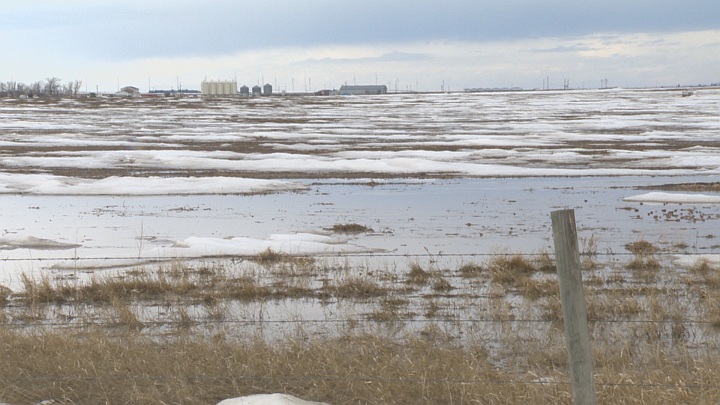Flood mitigation efforts in the Municipal District of Taber will be receiving another financial boost.

On Monday, the federal government announced it is investing $9.8 million into the Horsefly Regional Emergency Spillway project.
The funding is for Phase 2 and 3 of the project and is made possible by the Disaster Mitigation and Adaptation Fund.
Infrastructure and Communities Minister Catherine McKenna made the announcement, alongside Reeve Merrill Harris.
They said the spillway will help protect more than 60,000 Albertans, important farmlands and crops in the region from the impact of floods caused by extreme weather events.
Since 2010, the M.D. of Taber has experienced five major floods caused by sudden heavy rainfalls and snowmelts. The events led to significant damage to municipal roads, crops and properties, according to a news release sent out by McKenna’s office.
The new spillway will enlarge 14 kilometres of existing irrigation canals to help divert storm water from the St. Mary River Irrigation District Main Canal to the Oldman River during storm events. That is aimed at considerably reducing the threat of flooding due to climate change and keeping families, businesses and communities safe.
“The Government of Canada is helping communities across Canada better manage the risks of disasters triggered by severe weather events and a changing climate,” McKenna said in the statement.
Harris said the M.D. of Taber is proud to partner with Infrastructure Canada to ensure the ongoing safety and security of southern Alberta residents, while creating about 150 new construction jobs “at a time when unemployment is at an all-time high.”
He went on to say the long-term economic impact of these infrastructure upgrades will help not only prevent future loss to property, farmlands and high-value specialty crops, but will also “serve to attract future investment for the agricultural and food processing industry in southern Alberta.”
The project is expected to be fully complete in 2025.
- B.C. introduces legislation recognizing Haida Gwaii Indigenous title
- Whale experts confident B.C. orca calf will survive, find family if rescue plan succeeds
- Plastic production cap still contentious as Ottawa set to host treaty talks
- Chemical plant shuts down after high benzene levels detected near Ontario First Nation




Comments